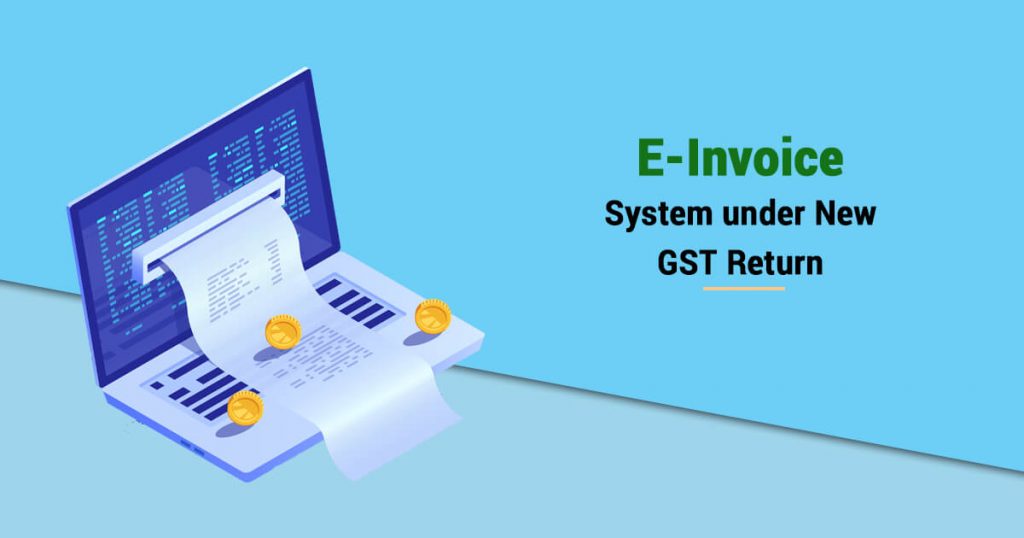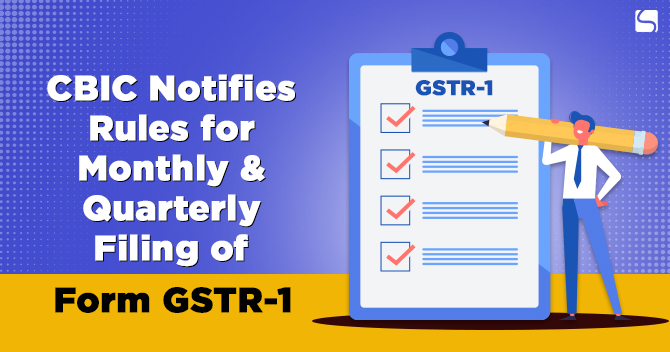E-Invoice System under New GST Return- Its Benefits and Implementation

Dashmeet Kaur | Updated: Nov 09, 2019 | Category: GST
The GST Council has approved an introduction of ‘E-invoicing’ or ‘electronic invoicing’ on September 29, 2019, for reporting business to business (B2B) transactions to the GST system. The new system will get implemented on January 1, 2020. Earlier, no standard prototype existed for e-invoice in India; however, the New GST return has set a standard to suffice the business needs of traders and industrial bodies.
It is imperative to set a standard for e-invoicing to ensure complete interoperability of e-invoices across the GST eco-system. The interoperability will enable one software to read e-invoices generated by another software and eliminate the need for creating new data entry which is the practice of the day.
Table of Contents
What is the New System of E-Invoicing?
‘E-invoicing’ is a system in which business to business invoices get electronically authenticated by GSTN. In simple words, E-invoicing is like electronic billing used by trading partners to monitor transactional documents. The system assures whether the suppliers and customers are following the terms of trading agreements or not. E-invoicing can authenticate any transactional documents from purchase orders, debit notes, payment terms and instructions to invoices and remittance slips.
Key objective behind the E-Invoice System
The purpose behind the issue of e-invoicing is to minimise the errors which occur in the manual data entry. Since machine regulates the system of e-invoicing, it will analyse and read the e-invoices of sellers, banks, agents or any other person involved in trading. Apart from a seamless record of transactions, the e-invoice will also provide details to the GST System as part of Return.
Benefits of E-Invoicing
E-invoice is a robust system that will render various benefits to businesses. Let’s have a look at them:
- E-invoice resolves and mends a gap in the process of data reconciliation under GST to reduce glitches.
- Another perk of using e-invoicing system is that it provides an option to track the invoices of suppliers in real-time.
- The e-invoices which got created on one software can be read by another software, thus, allowing interoperability.
- As the tax authorities get all the necessary information on a transaction level via e-invoices, so they don’t have to deter audits/surveys.
- E-invoice swiftly generates a valid input tax credit.
Implementation of E-invoice under New GST Return
The GST Council[1] has approved a standard of e-invoice system in its 37th meeting dated 20th Sept 2019. As per the council, the system will get implemented from 1st Jan 2020, in a phased manner by GSTN. Besides that, even the GST portal has published a scheme of the proposed system. Because the standards are difficult to understand by the general public, so a document will be presented to explain the entire e-invoicing system in layman’s language.
Final Thoughts
Read,Also: GST for Bloggers.














